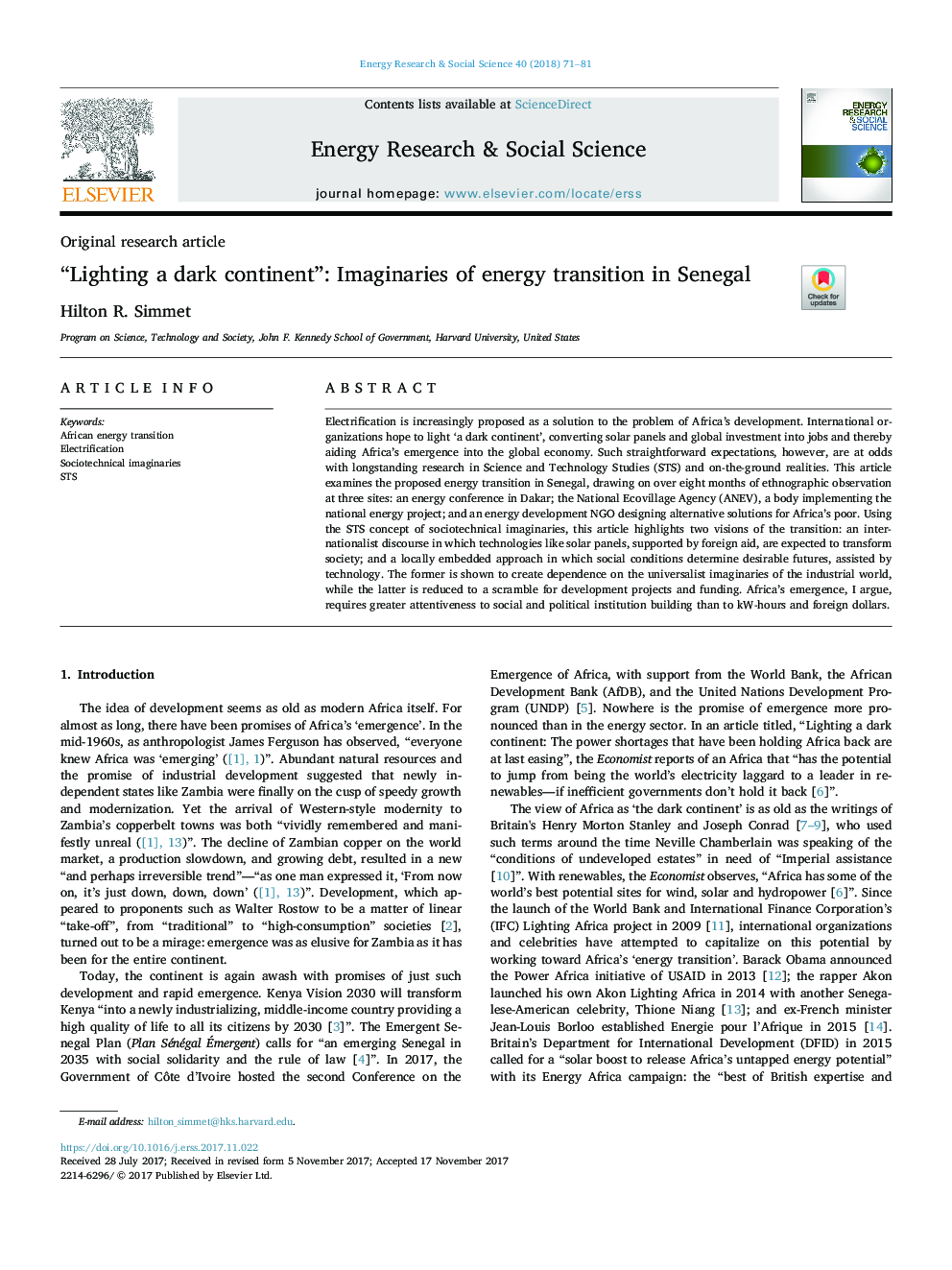| Article ID | Journal | Published Year | Pages | File Type |
|---|---|---|---|---|
| 6557543 | Energy Research & Social Science | 2018 | 11 Pages |
Abstract
Electrification is increasingly proposed as a solution to the problem of Africa's development. International organizations hope to light 'a dark continent', converting solar panels and global investment into jobs and thereby aiding Africa's emergence into the global economy. Such straightforward expectations, however, are at odds with longstanding research in Science and Technology Studies (STS) and on-the-ground realities. This article examines the proposed energy transition in Senegal, drawing on over eight months of ethnographic observation at three sites: an energy conference in Dakar; the National Ecovillage Agency (ANEV), a body implementing the national energy project; and an energy development NGO designing alternative solutions for Africa's poor. Using the STS concept of sociotechnical imaginaries, this article highlights two visions of the transition: an internationalist discourse in which technologies like solar panels, supported by foreign aid, are expected to transform society; and a locally embedded approach in which social conditions determine desirable futures, assisted by technology. The former is shown to create dependence on the universalist imaginaries of the industrial world, while the latter is reduced to a scramble for development projects and funding. Africa's emergence, I argue, requires greater attentiveness to social and political institution building than to kW-hours and foreign dollars.
Related Topics
Physical Sciences and Engineering
Energy
Energy (General)
Authors
Hilton R. Simmet,
